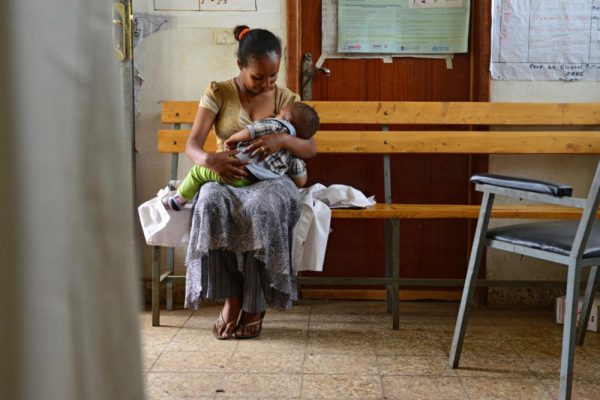As the world celebrates World Breastfeeding Week, the United Nations has emphasised the importance of a practice that gives children the healthiest start in life and the need to strengthen policies to promote nursing with stronger workplace policies.
The theme of this year’s observance held from August 1 to 7 is “Women and work – Let’s make it work, the theme is aimed at enabling working mothers breast feed.
In a joint statement, he heads of the UN Children’s Fund (UNICEF), Anthony Lake, and the World Health Organization (WHO), Margaret Chan said “We know that breastfeeding helps children to survive and thrive – enabling infants to withstand infections, providing critical nutrients for the early development of their brains and bodies, and strengthening the bond between mothers and their babies. And the benefits of breastfeeding last a lifetime.
“To achieve this ambitious and very important goal, we need to tackle all the barriers to breastfeeding, governments should lead the charge by making breastfeeding a policy priority in national development plans, increasing resources for programming that supports breastfeeding, and working with communities and families to promote the full benefits of breastfeeding.”
Currently only 38 per cent of infants around the world today are breastfed exclusively for even the recommended first six months of life.
The World Health Assembly has set a global target of increasing exclusive breastfeeding rates for children less than six months of age to at least 50 per cent by 2025.
Research has revealed that infants who were breastfed for at least one year went on to stay in school longer, score higher on intelligence tests and earn more as adults than those who were breastfed for only a month.
Approximately 830 million women workers in the world, the majority do not benefit from workplace policies that support nursing mothers.
“We know that breastfeeding improves the lives of millions of children and ultimately benefits families, communities, and societies. Our challenge now is to make breastfeeding work in the workplace, too. Together, we can help working women to breastfeed and reap the benefits for themselves, for their children, and for the health and well-being of future generations,” Mr Lake and Dr Chan added.



Leave a Reply